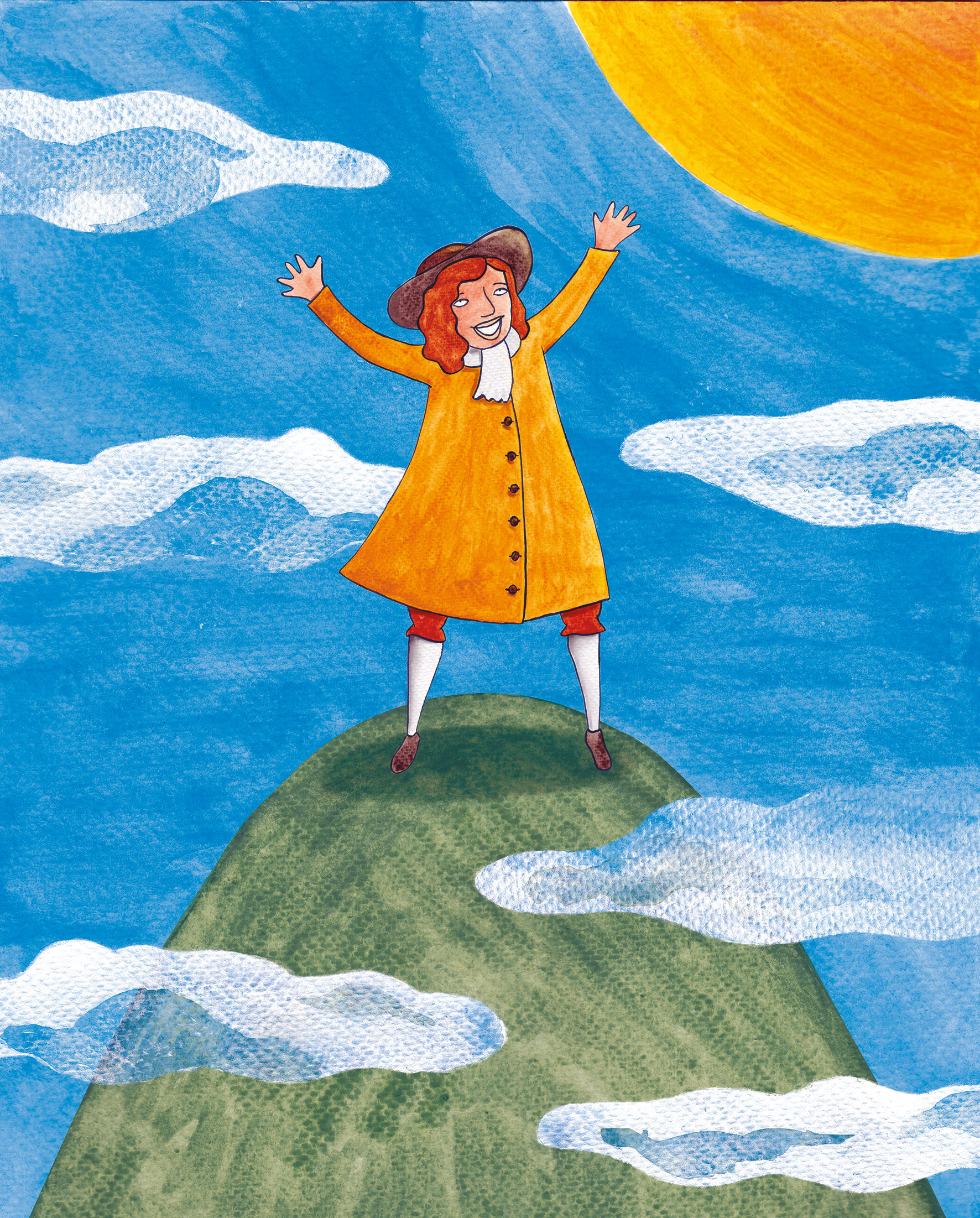Celebrating George Fox 400
2024 marks the 400th anniversary of the birth of George Fox (George Fox 400), the best known of the group of men and women who founded Quakerism. Fox made a point of living with integrity, acting against injustice, and building a faith community that practiced what they preached, looking for that of God in everyone. Quakers through history continued to live out these values, playing an important role in the abolition of slavery, modelling fair employment practices, and working for humanitarian and social change. Today, Quakers in Britain work for peace, climate, and social justice. Quaker communities create spaces for people of all faiths and none to explore their beliefs in quiet stillness. Following the example of George Fox and early Friends, Quakers continue to live and work by testimonies to peace, simplicity, truth, integrity, and equality.
George was born in Fenny Drayton, Leicestershire, in 1624, a turbulent time in British politics and religion. In his youth, he became dissatisfied with the inconsistency of Christians around him – saying they believed one thing, but not showing it in their actions outside of church. He wanted to be part of a faith community that lived out what they believed. As a young man, George travelled around the country gathering a group of like-minded people. This group believed that God is present in all people, and that personal experience of God is more important that the structures and rules of the established church. They became the first Quakers. Though their beliefs made them very unpopular with authorities and resulted in decades of persecution, they persisted and developed their ideas about peace and equality.
George made his first visit to Swarthmoor Hall in 1652, meeting Margaret Fell and convincing her to convert to Quakerism. This proved to be a pivotal moment in Quaker history, as the pair formed a long-lasting partnership. She was a brilliant writer and organiser and was key to the early organisation of the Society of Friends (the formal name for Quakers). George and Margaret served time in prison together, they developed the structures that have sustained the movement for 400 years, and in 1669, they got married.
George and many other early Quakers used Swarthmoor Hall as their base in the north, and he visited many times over the course of his life. He found refuge here after a violent mob attacked him in Ulverston, and in 1663, he was arrested right here in the hall for holding illegal Quaker meetings. Many early Quakers were imprisoned for living out their testimonies to truth and equality and acting against the rules of society that contradicted those beliefs. Swarthmoor Hall served as a safe place for many during the early years of Quakerism.
Swarthmoor Hall was never George Fox’s permanent home, even after he married Margaret, but he did spend several years here in the 1670s. He had just come out of prison for the final time and, due to poor treatment, he was very ill. Swarthmoor Hall was where he came to recover. It was during this period that he dictated his famous autobiography, known as his journal.
George Fox is remembered for rallying early Friends and for his work enabling Quakerism to thrive when so many other radical groups fell apart. Quakers all over the world will be celebrating their history this year, alongside their continuing work for peace and climate justice.
You can find out how we are celebrating at Swarthmoor Hall by visiting our News and Events page.
© Photo credit: Marcela Teran, Liberation Works






